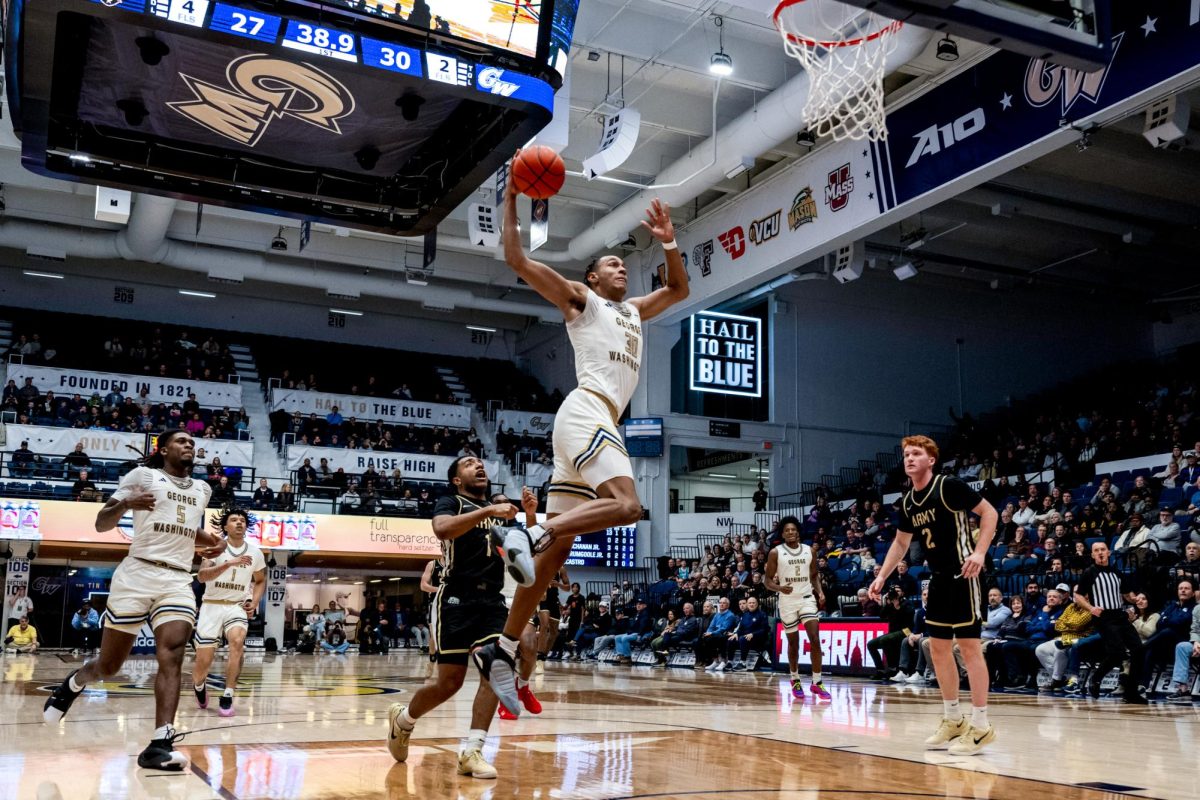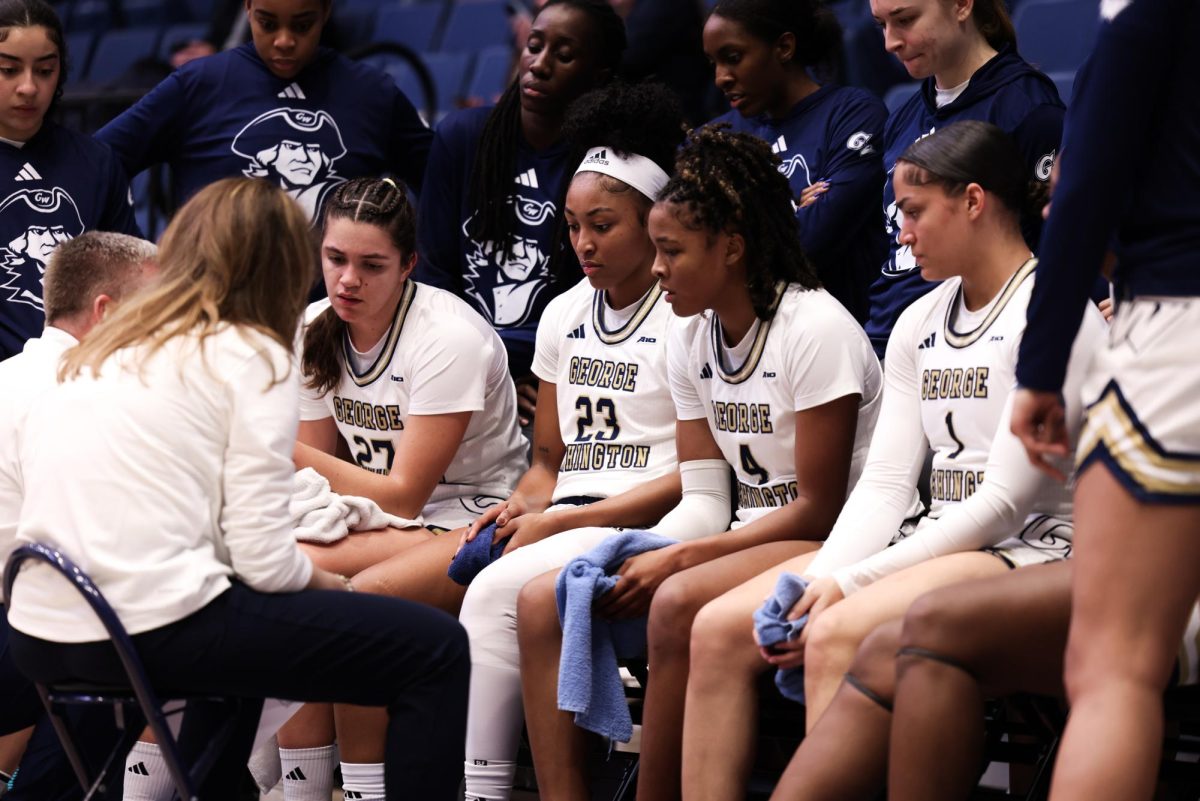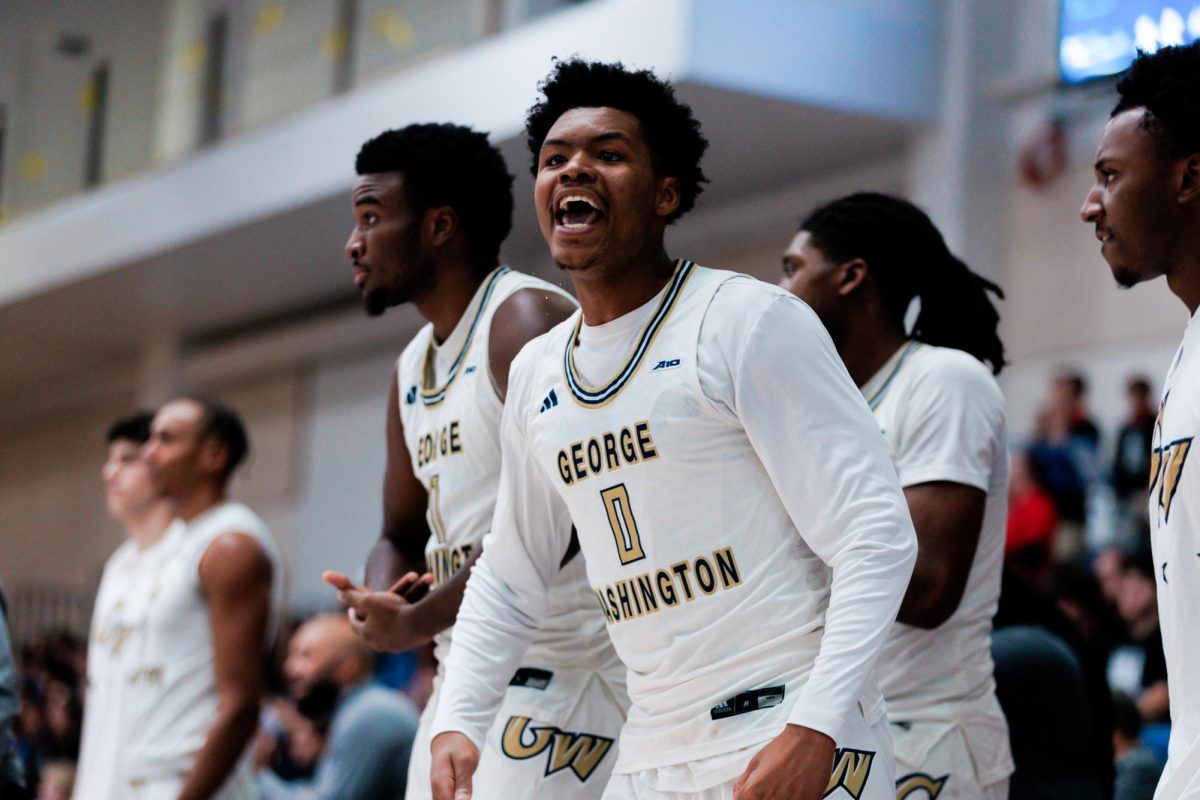If you read the story about the GW gymnastics team in last Thursday’s edition of The Hatchet (God bless those who did), you may have noticed the many times the word “hit” was used.
Nearly every member of the team quoted in the story talked about how they wanted to “hit” this weekend at the NCAA Regionals.
Freshman Stacie Evans said, “We just want to all HIT.” (Capitalization added for emphasis.)
“Our whole team finally put it together and we all HIT,” Evans said about the Atlantic 10 Championships.
Graduate assistant Lori Franklin said, “You never know what could happen at regionals, we could (you guessed it) HIT.”
Confused as to how the word “hit” pertains to gymnastics, I turned to the ever faithful Webster’s Unabridged Dictionary (because no self-respecting journalist would use an abridged dictionary). Webster’s listed a mind-draining 26 definitions for the word “hit” – but none could really be applied to gymnastics. After a not-so-exhausting search, I was still confused.
The obvious point here is that sports has a distinct language, and to successfully follow many sports you have to speak the lingo.
Many sports have their own versions of this language that I call sportsese. In baseball for example, a ground ball that just makes it past the infielders is a “seeing-eye single.”
Coaches are the most fluent in this language. GW women’s soccer team coach Shannon Higgins-Cirovski might tell you that her team didn’t have “good spacing out there.”
Men’s basketball coach Mike Jarvis might say that his team “didn’t hit the glass,” after a poor rebounding effort. Last year, when his team struggled through a poor season, Jarvis was fond of saying that his team was “in it for the reason, not the season.”
But these are just simple phrases. As in any language, these phrases can be put together to form more complete thoughts. Example: “We didn’t have good spacing out there and just didn’t hit the glass, but that’s okay, because we’re in it for the reason, not the season.”
To know what is being communicated in this sentence, you’d have to be able to speak sportsese.
Journalists are also often fluent speakers of sportsese. During March Madness, you may have heard sportscasters call the basketball a “rock” or the basket “the rack.” Or maybe they combined these words into a phrase such as, “He took the rock strong to the rack.” Even the term March Madness is a sportsese term.
But these examples are well known. The trouble comes when less well known sports use forms of sportsese. Swimming coach Marc Hagen might say that his team is “looking good in the water” or that one swimmer did well in the “50 free.”
A tennis player might describe a well-placed shot as an “inside-out winner.”
Unfortunately, more and more players, coaches, journalists and fans are speaking sportsese. It has gotten to the point that, if you want follow a sport, you have to learn the language.
So baseball players will keep “belting dingers,” hockey players will “light the lamp” and football players will almost certainly “dive for the sticks.”
As for the gymnastics team, after a great season, it finished sixth out of seven teams at the NCAA Southeastern Regionals. So whatever the Colonial women meant by the word “hit,” I don’t think they did it.-Dave Mann






